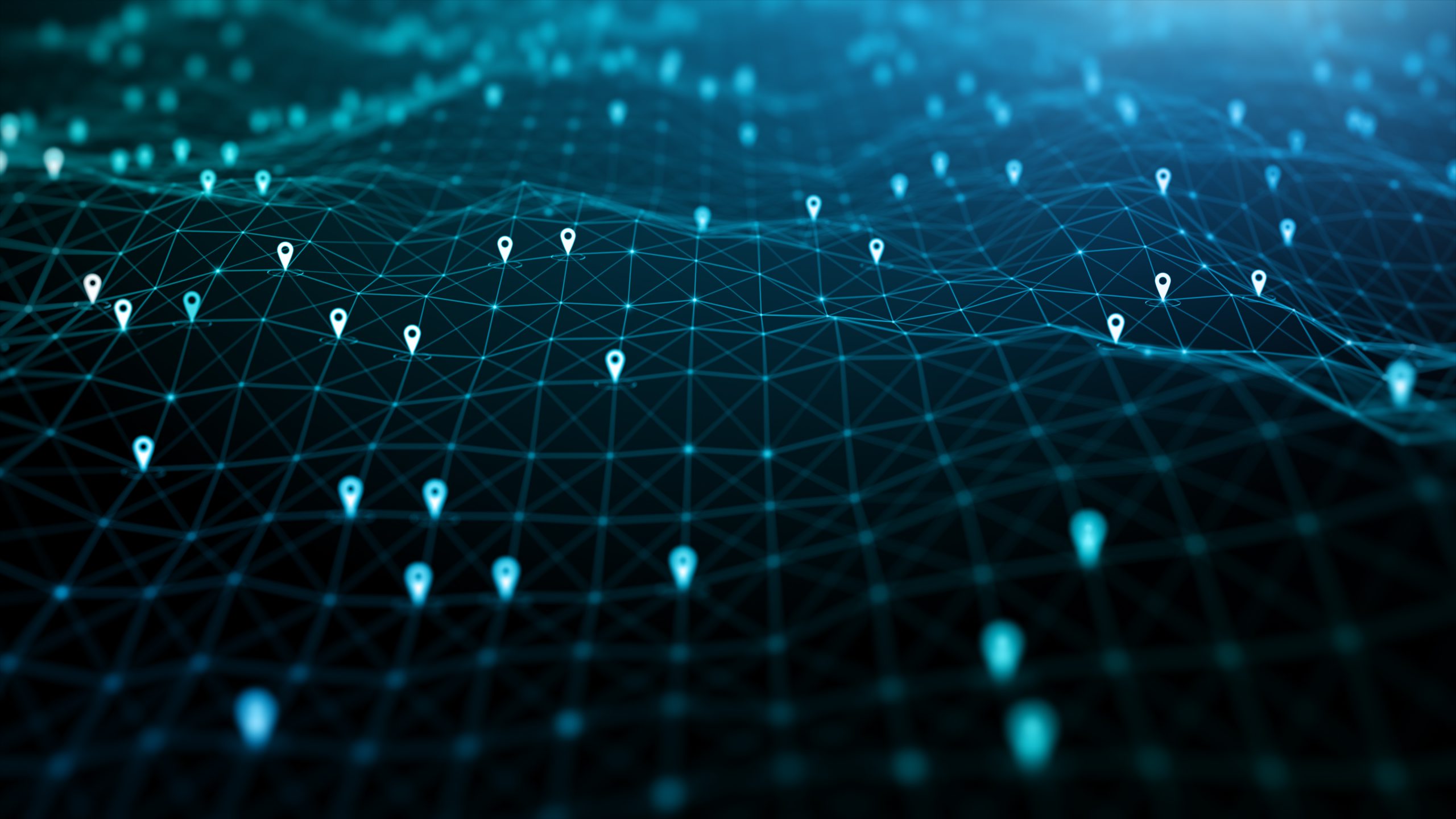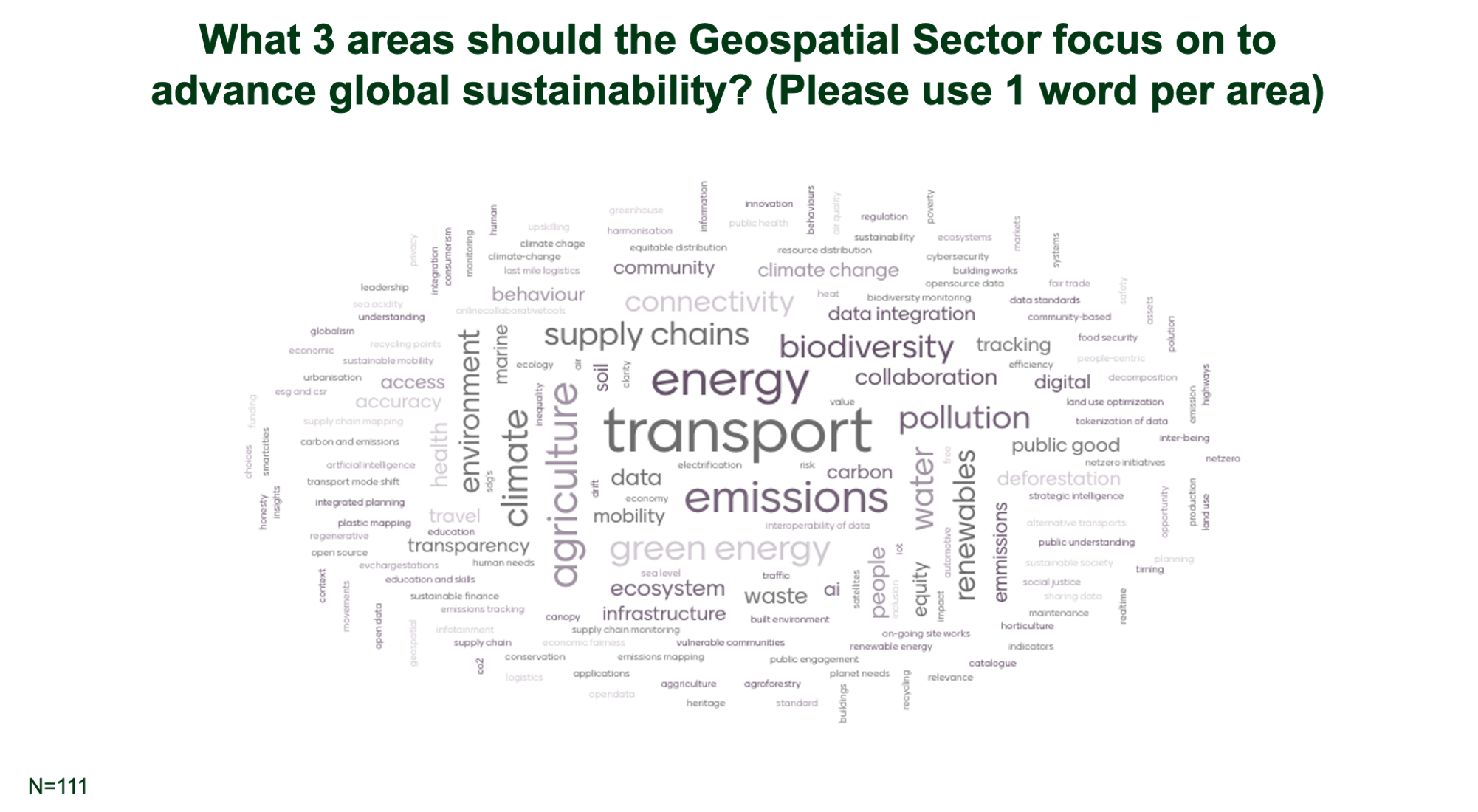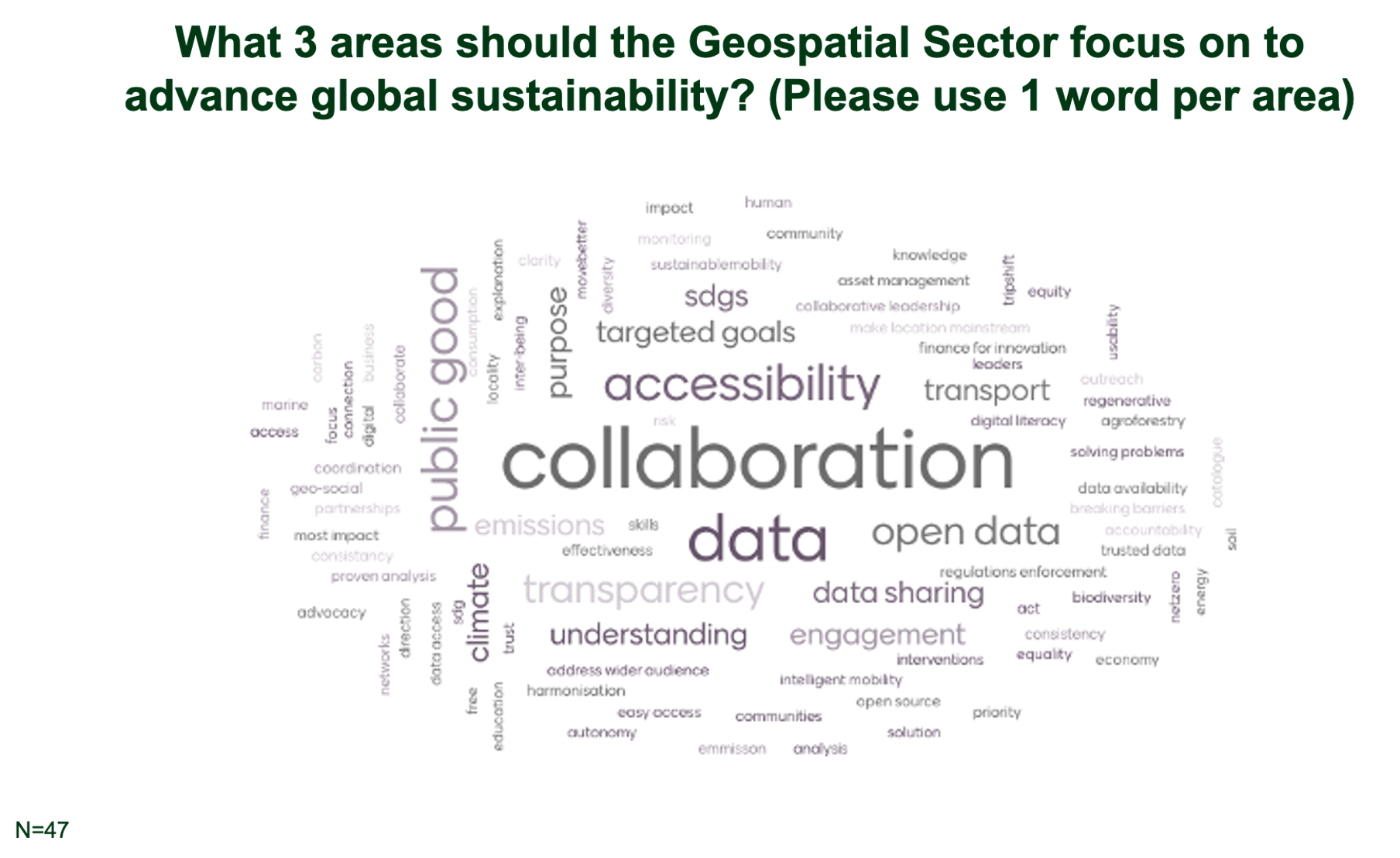Thought leaders are beginning to understand geospatial’s role in tackling humanity’s biggest challenges

The grand challenges facing humanity in the 21st Century will require an unprecedented level of collaboration if we are to have any hope of solving them. From pandemics to the climate emergency, the problems we now face are global, and to address them will require expertise from across all sectors.
We face these challenges during the rise of the data economy. Geospatial data is particularly important, in part due to its ability to link together what would otherwise be disparate datasets, tying them together through their spatial and temporal components. As the value of geospatial data becomes more apparent, thought leaders across diverse sectors are beginning to recognise its transformative power.
Geospatial intelligence
“Geospatial is not only recognised as the integrating principle and the anchor for contextualizing all information in our interconnected data-rich world. Today, geospatial is actually delivering on its promise of value: The Power of Place! As a community, we are privileged to play part in delivering this value to the world via our combined expertise in innovation, partnerships and standardisation.”
Nadine Alameh, CEO | Open Geospatial Consortium (OGC)
OS and KTN recently published The Power of Place, a report where industry leaders and emerging thinkers discuss the challenges of the geospatial sector in adapting to the innovation economy and to use location data to build a smarter, more inclusive world. To accompany the report, KTN and OS also produced a webinar series to begin changing the narrative around geospatial as the domain of a few tech-savvy geo-informaticians to a fundamental enabler of the connected, autonomous and sustainable world we are building. As part of this webinar series, we tried to measure if attendees’ perceptions of location intelligence had changed as a result of engaging with the ideas raised in The Power of Place. We asked – What three areas should the geospatial sector focus on to advance sustainability? – both before and after the lecture series
Changing perceptions
As you can see from the word clouds, before the lecture series, participants thought that geospatial intelligence would support sustainability outcomes by focusing interventions in specific sectors. Transport, energy and infrastructure feature prominently – individual sectors were identified as potential beneficiaries. But after the series, as you can see from the second word cloud, topics like collaboration, open data and the public good came to the fore. In other words, attendees’ perception shifted from seeing geospatial as useful in specific industry verticals, to seeing geospatial as an agnostic horizontal enabler of change.
As the question posed to respondents referenced sustainability, itself representing a change of course for the entire trajectory of human society, the fact that the power of geospatial intelligence to bring about such change is being acknowledged in this way, is promising. This shows that some of the overarching themes that informed the publication and subsequent webinars, namely the core tenets of building collaborative sharing, and thinking in systems, were convincingly conveyed in a way that was persuasive to attendees.


Core tenets

As illustrated in the diagram above, 15 percent of participants identified ‘trusted collaborations and partnerships’ as a priority for the sector. To shift from an economy based on siloed intellectual property and competition we need to refocus on collaboration in the form of information sharing. While there still remain non-trivial barriers to open data becoming more mainstream, the emergence of platforms-as-a-service, as illustrated by the geospatial value chain (see below), shows that viable business models are being built.
A significant part of solving this challenge is winning trust of stakeholders: 18 percent of respondents thought that accessibility to data is key, but we need better incentives to opening data. The emergence of large-scale collaborative projects like the National Underground Asset Register (NUAR), which involve multiple private companies opening their assets shows that winning trust and building partnerships, even between competing actors, is possible.
18 percent of respondents agreed that adopting a systems thinking approach to connecting solutions across domains is also key to making progress. While low resilience in our climate and economy show we are not yet applying systems thinking globally, there are signs this is changing. The work being done around the National Digital Twin, which is actually a network of connected digital twins, shows systems thinking in action.
A Sample of the Geospatial 2.0 Value Chain, as seen in The Power Of Place report.

The Power of Place
“Through #ThePowerofPlace publication and series, the cross-economy value geospatial data can bring is abundantly clear. The grand challenges of today and tomorrow need geospatial data to be embedded into decision-making at its core. The Geospatial Commission looks forward to further collaboration with the KTN as we carry out activities to enhance the UK’s geospatial ecosystem.”
Bomi Okuyaga, Head of Analysis at the Geospatial Commission
Global challenges like beating Covid-19 and reaching Net Zero are systemic and will require a system-of-systems approach. There is no way to balance public health, the economy, and our environment, and achieve desired outcomes in each of these categories, without collaboration and thinking in systems. Location data is the link identifier in this cyber-physical world we are building, connecting the dots between objects, people, systems and the environment. In a world where services are becoming increasingly on-demand, the ability to extract meaningful insights from ever-greater amounts of data being generated is beginning to emerge in the form of geospatial intelligence.
KTN and OS would like to thank all the participants for helping to make this webinar series a success, providing inspiration and fresh ideas for the sector moving forward. If you’d like to continue to contribute to the conversation around geospatial intelligence, you can visit the KTN Geospatial page here and download the Power of Place report here.

